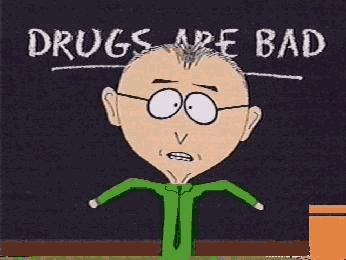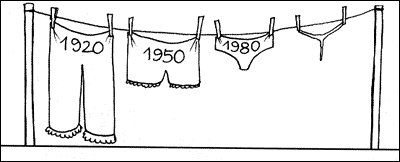Global warming turns tundra to forest-study
Source: Reuters
Global warming turns tundra to forest-study
Sun, 3 Jun 2012 17:00 GMT
Source: reuters // Reuters
* Shrubs have grown to trees in just a few decades
* More trees in tundra will speed warming
LONDON, June 3 (Reuters) - Plants and shrubs have colonised parts of the Arctic tundra in recent decades growing into small trees, a scientific study found, adding the change may lead to an increase in global warming pressures if replicated on a wider scale.
Scientists from Finland and Oxford University investigated an area of 100,000 square km, roughly the size of Iceland, in the northwestern Eurasian tundra, stretching from western Siberia to Finland.
Using data from satellite imaging, fieldwork and observations from local reindeer herders, they found that in 8-15 percent of the area willow and alder plants have grown to over 2 metres in the last 30-40 years.
A report of the research is published on Sunday in the journal Nature Climate Change.
"It's a big surprise that these plants are reacting in this way," said Marc Macias-Fauria of Oxford University and lead author of the report.
Read more: http://www.trust.org/alertnet/news/global-warming-turns-tundra-to-forest-study
WriteWrong
(85 posts)Let me guess - it's a big surprise that replacing a huge reflective white snow field with a forest will absorb more solar energy too.
antigone382
(3,682 posts)They expected this process to take decades. It also notes that this is a part of the arctic that has warmed more quickly than other parts, as it is warmed by the Gulf Stream and other factors, but that it acts as a bit of a bellwether for the region.
Lucky Luciano
(11,257 posts)lovuian
(19,362 posts)?
joshcryer
(62,276 posts)This means that the arctic will be darker and will absorb more heat.
slackmaster
(60,567 posts)
antigone382
(3,682 posts)Yeah, hopefully they'll absorb a bit of carbon. But that will be outweighed by the fact that they represent a much darker, sunlight absorbing surface than the snow and ice they are replacing.
Meanwhile, in warmer and drier areas, such as the Sahel, trees are dying out.
PotatoChip
(3,186 posts)slackmaster
(60,567 posts)BTW, trees don't care about whether someone thinks they are "supposed to" be somewhere. They grow wherever the conditions are suitable.
PotatoChip
(3,186 posts)That is some distant past you are referring to there, dude. ![]()
Google the word Tundra and see if trees are 'supposed' to be there.
Tundra
From Wikipedia, the free encyclopedia
In physical geography, tundra is a biome where the tree growth is hindered by low temperatures and short growing seasons. The term tundra comes through Russian тундра from the Kildin Sami word tūndâr "uplands," "treeless mountain tract."[1] There are three types of tundra: Arctic tundra,[2] alpine tundra,[2] and Antarctic tundra.[3] In tundra, the vegetation is composed of dwarf shrubs, sedges and grasses, mosses, and lichens. Scattered trees grow in some tundra. The ecotone (or ecological boundary region) between the tundra and the forest is known as the tree line or timberline.
Arctic
Arctic tundra occurs in the far Northern Hemisphere, north of the taiga belt. The word "tundra" usually refers only to the areas where the subsoil is permafrost, or permanently frozen soil. (It may also refer to the treeless plain in general, so that northern Sápmi would be included.)
http://en.wikipedia.org/wiki/Tundra
slackmaster
(60,567 posts)sudopod
(5,019 posts)jtuck004
(15,882 posts)a bit if you didn't grow up with that stupid tune in your head.
They were from Bedrock, or as I like to call it "Teabaggerville".
slackmaster
(60,567 posts)The Flintstones
Flintstones. Meet the Flintstones.
They're the modern stone age family.
From the town of Bedrock,
They're a page right out of history.
Let's ride with the family down the street.
Through the courtesy of Fred's two feet.
When you're with the Flintstones
you'll have a yabba dabba doo time.
A dabba doo time.
You'll have a gay old time.
PotatoChip
(3,186 posts)But hadn't thought of it for years- till now. Thanks guys! ![]() Ugh!
Ugh! ![]()

cstanleytech
(26,298 posts)earth more as they provide shade plus they absorb carbon from the atmosphere.
freshwest
(53,661 posts)Arctic Dave
(13,812 posts)Willow is a little taller the scrub brush.
joshcryer
(62,276 posts)This is just one of many feedbacks we're not able to put our heads around.
NickB79
(19,253 posts)As the tundra thaws enough for the trees to grow on it, it will release methane on a massive scale.
This link, for example, estimates there are 1.5 TRILLION tons of carbon locked up in the tundra, much of it in the form of methane: http://thinkprogress.org/climate/2009/08/17/204508/positive-methane-feedbacks-permafrost-tundra-methane-hydrates/
AND, methane has a warming potential 20X that of CO2 on a ton-for-ton basis on a century-long timescale. That means that a thawing tundra has the potential to dwarf what we've added to the atmosphere over the past 200 years.
The fact of the matter is that the Arctic has entered it's death spiral. We're already seeing massive methane releases, to the point that Arctic lakes are bubbling with methane plumes. The polar ice cap will be gone by the end of this decade at best, at which point the Arctic ocean will warm rapidly without it's protective white ice cover. This will drive the thawing of the tundra even more, releasing even more methane. We've entered a positive feedback cycle that shows no signs of stopping for centuries, if not millenia. Widespread methane releases are one of the best theories so far to explain the Permian mass extinction 250 million years ago, when a full 95% of all species on this planet went extinct.
Sorry folks, but it's too late to stop global warming, and has been for decades. At best, we need to prepare for the fact that we're going to lose the majority of the human race, several billion men, women and children, by the end of this century, and most of that loss will be due to starvation and war. We should still work towards finding and building clean, renewable energy sources. However, we need to work not to keep the current, broken system running but to ensure that something of human civilization can survive and carry on after everything comes crashing down around us.